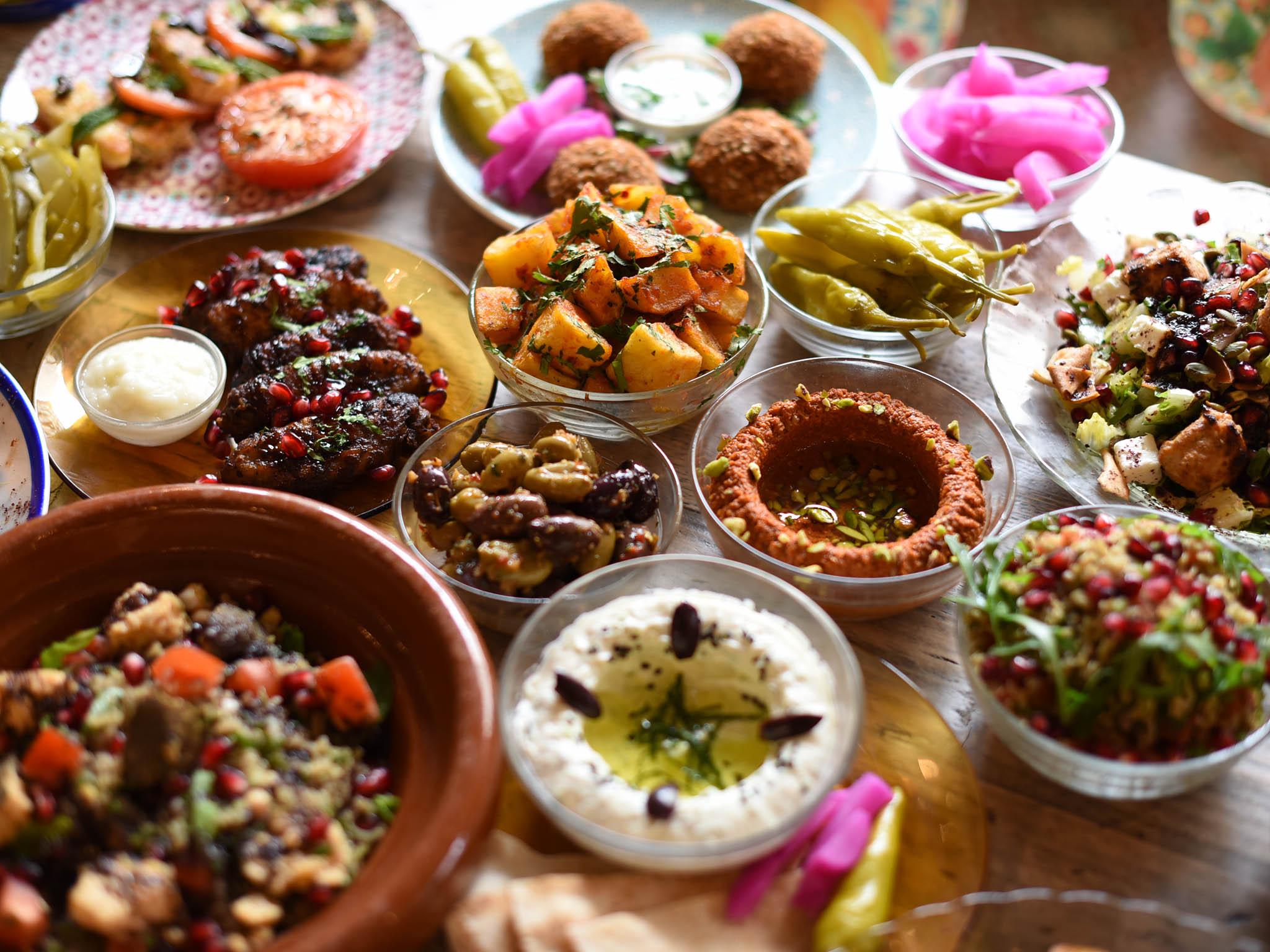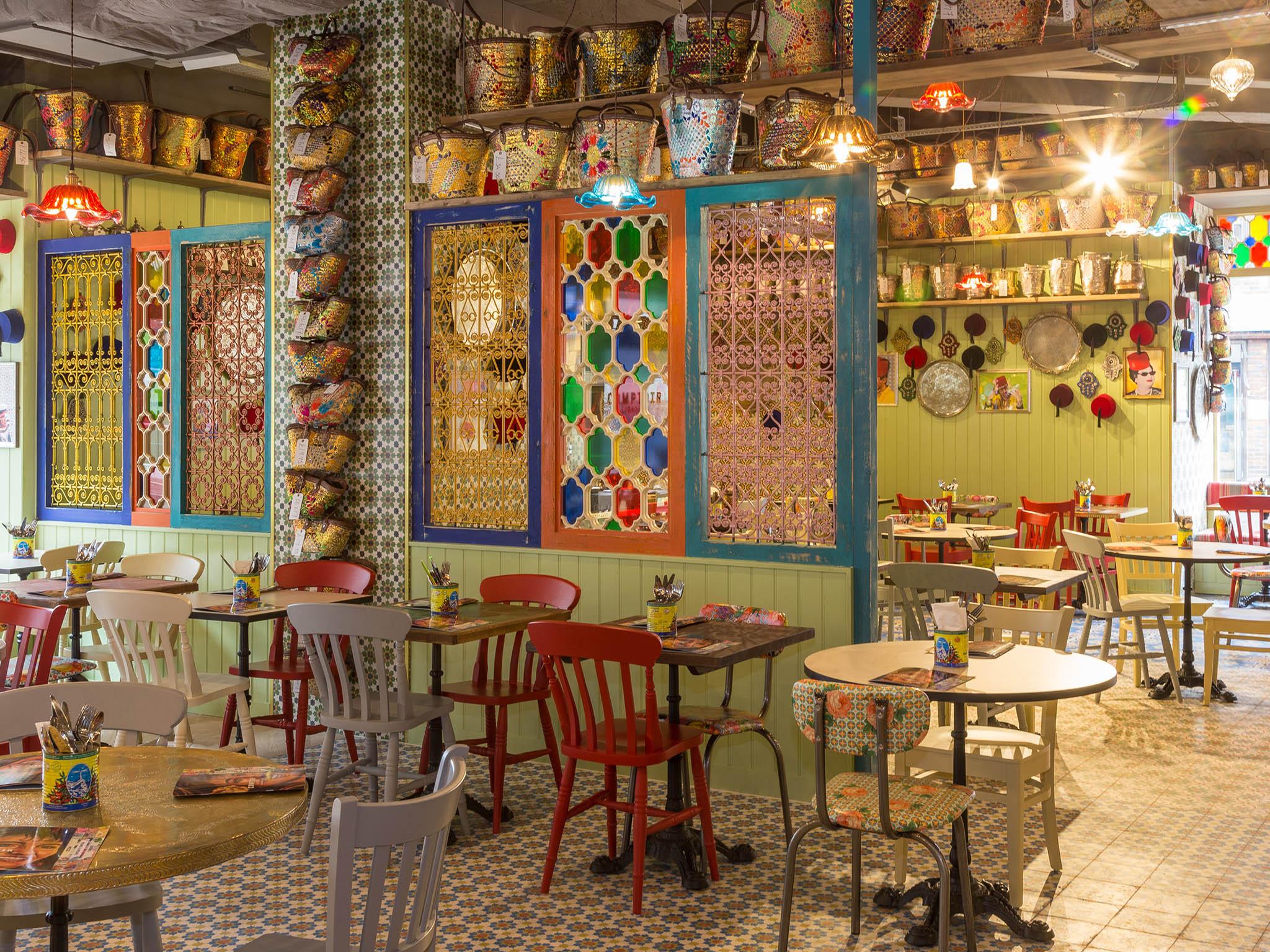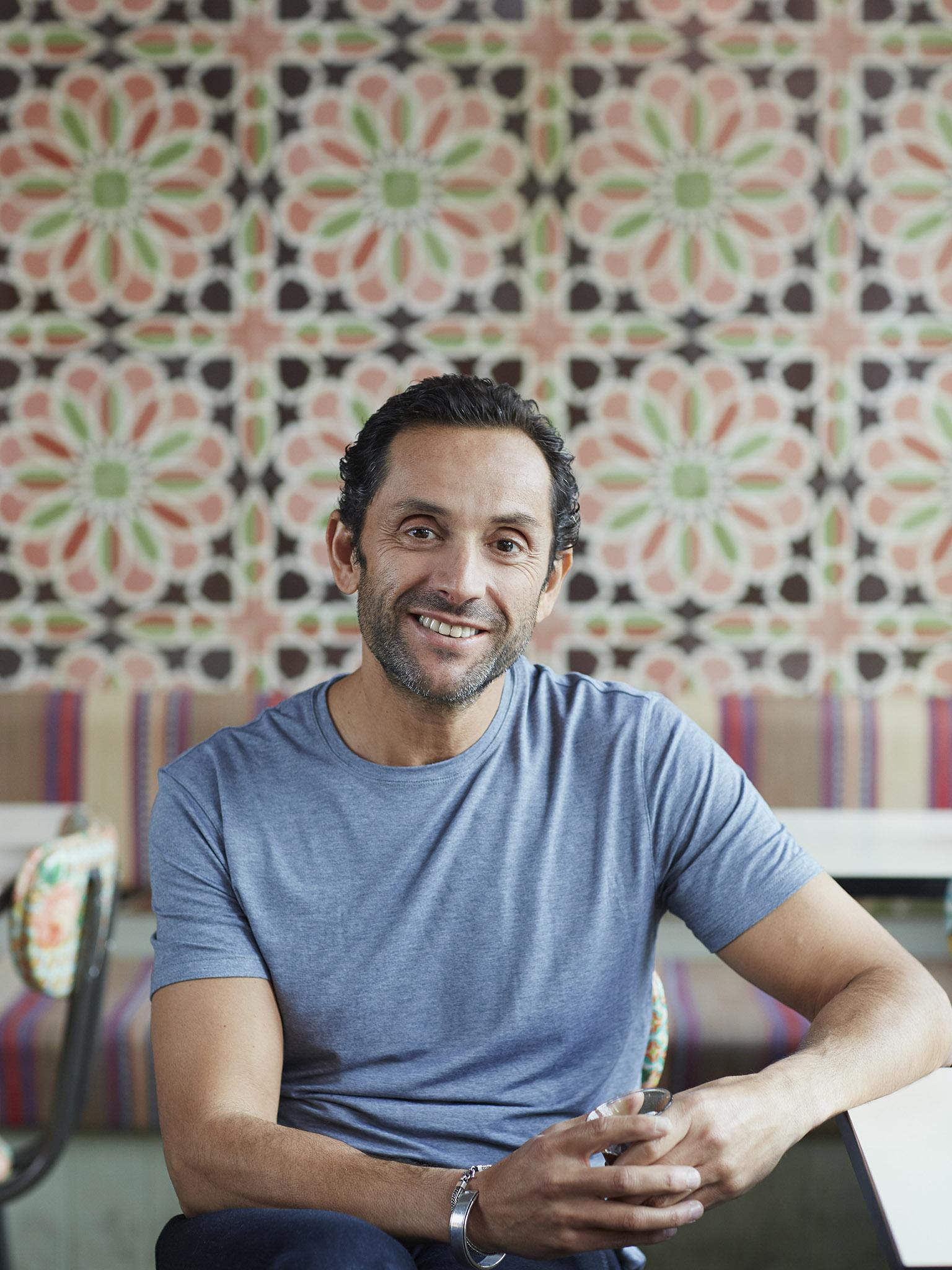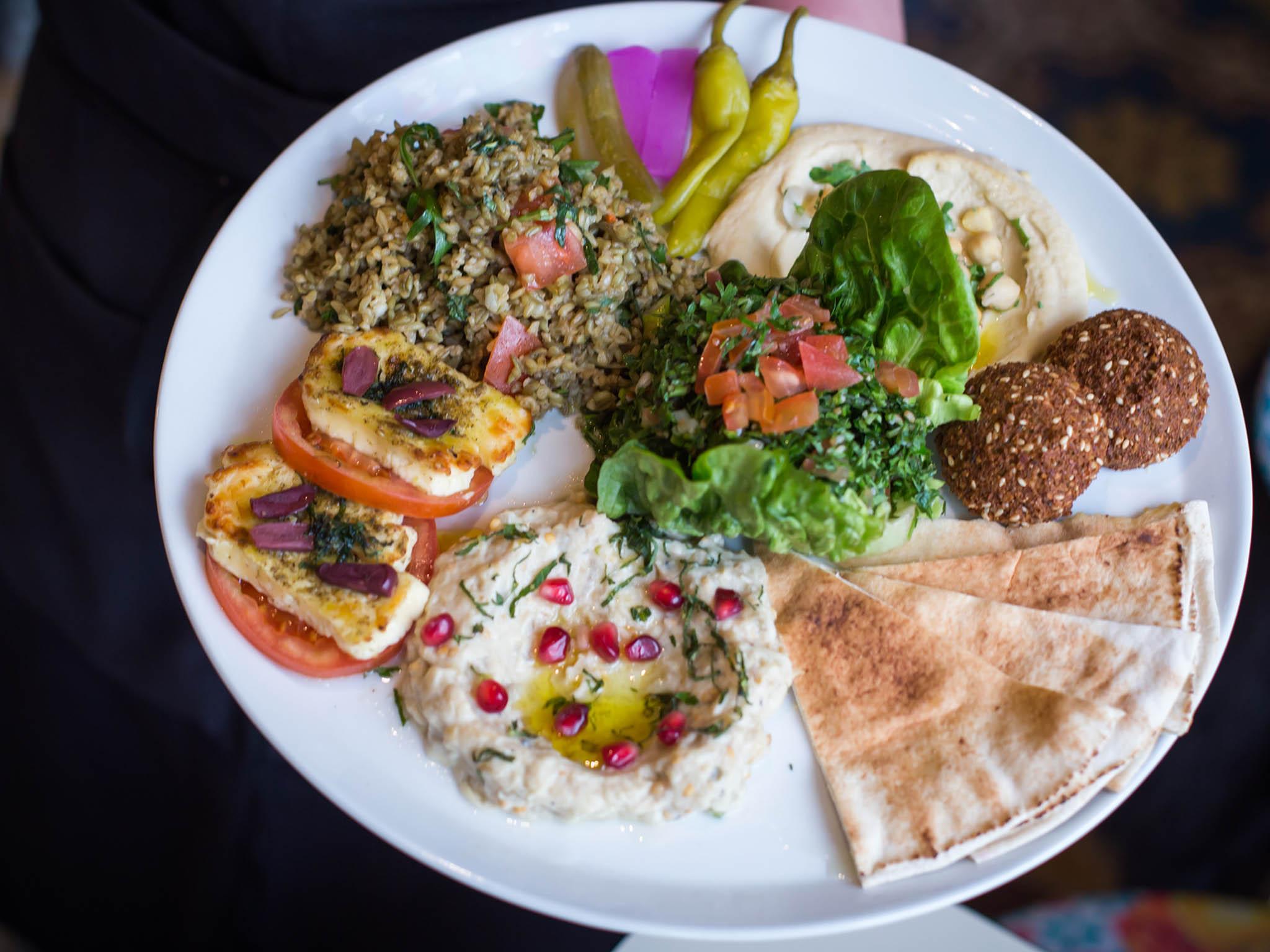Tony Kitous, the man credited with glamourising Middle Eastern food
After working as a restaurateur for 30 years, Tony Kitous knows what works, and in a difficult climate is still expanding his chain of Middle Eastern eateries

AA Gill credited him with bringing the glamour to Middle Eastern cuisine, which is proudly written on the Comptoir website, and rightly so. “I didn’t often get compliments from him, but this was in 2000, and there weren’t that many places doing this sort of food like we were then,” says Tony Kitous.
Meaning the Lebanese counter, Comptoir Libanais’ founder Kitous has done for Middle Eastern food what the likes of Antonio Carluccio and Jamie Oliver did for Italian food: opened it up for the masses, while still retaining its essence.
Middle Eastern cuisine, or more specifically Lebanese is nothing new here, though he says. “It’s been in London since the 80s, but I wanted to make it for everyone an open it up.”
Originally from Algeria, he moved to London in 1988 at a time even cous cous wasn’t readily available. “I even saw a chef on TV cooking it by putting it in my microwave,” he says. He thinks of it as how the UK viewed Italian food 40 years ago, “People didn’t know it”. Now, supermarkets have many of the ingredients you need to make this food at home.
But don't be foolish enough to think it’s a trend, as it's not, he adds. It’s a cuisine that’s been around for centuries.
“I’m bringing a food I know to many people who don’t know it or understand it. There’s was a gap in the market when I started in the early 90s and now, it’s still expanding, slowly." He opened Levant on London's Wigmor Street in 1993, which is still open and is where he spends practically every day, unless he's abroad. And in 2008, he opened the first Comptoir Libanais which has become a successful chain around the country.

Kitous hasn’t changed the cuisine. “It already ticks boxes for everyone, vegetarian, vegan, meat and with all the colour and texture it looks amazing too. You don’t need to necessarily understand it to appreciate it, just eat it first.”

The food is not pretentious, neither is it trying hard to be something it’s not. It’s naturally attractive to look at thanks to things like pomegranate molasses, and lends itself to sharing with mezza platters of little dishes of cheeses, meats and salads. “I marry ingredients, but I wouldn’t say I modernise it as it’s all authentic”.
And it’s not just the food that is doing the talking. He’s used the colours, look and feel of the Middle East to style the interiors, which he calls a memory bank back to his childhood and travels, with bright colours, beautiful mosaics, “as if it’s someone’s home,” he says. There's a souk-style shop that sells bags made by women in Marrakech – which are just like the ones he used to carry to the market to buy fruit and veg as a child – and ingredients to make the food at home.
Despite having been in the restaurant business for 30 years, Kitous says his chain (which is still expanding) is not immune from all the challenges other similar groups are going through, especially those on the high street who are being hit the hardest at the moment. Rising costs of rent is the biggest problem, he says, and its felt nowhere harder than in the capital, of course.

“We have been ambitious with our openings, but we’re also very careful with where we open." he says. There’s 22 Comptoir Libanais restaurants, 13 of which are in London with the 23rd opening in London Bridge soon. The chain reaches as far as Reading to Leeds and Exeter across the country, with even a branch in Utreht, The Netherlands.
Kitous opened the first of the branch during the financial crash in 2008. “Everyone told me ‘don’t do it’, but the idea of Comptois has been brewing in the back of my mind for more than 10 years.

When I had walked down the high street you saw Café Rouge and Pizza Express – where many of the world’s cuisines are represented, but I didn’t see Lebanese or Middle Eastern cuisine here. And I knew that the same people who went here, would also love our food too, so that’s one of the main reasons I started it."
For Kitous, keeping it affordable – which it had to be, given the climate he opened – was important. “At our core, is still being good value for money as well as good food," he says, and he often ranked in London’s Time Out magazine as one of the best places to eat for less than £10.
“We wanted it casual, to invite everyone from students to bankers in,” he says.
When he opened his first restaurant at 22, Levant, everyone called him “so brave”. Now there are different challenges for young people starting out, he says. And although social media and pop ups are good platform for young restaurateurs starting out now, the huge costs involved can be punishing. “It’s not like it wasn’t expensive when I started out, it’s just getting even more so now”.
Find your local Comptoir Libanais comptoirlibanais.com
Join our commenting forum
Join thought-provoking conversations, follow other Independent readers and see their replies
Comments
Bookmark popover
Removed from bookmarks